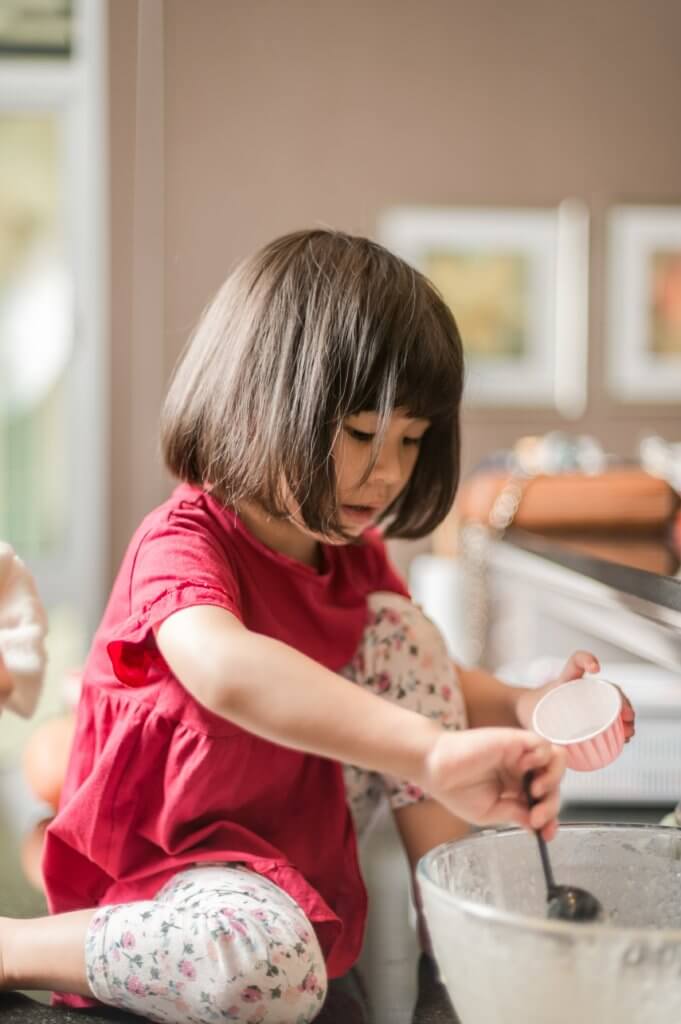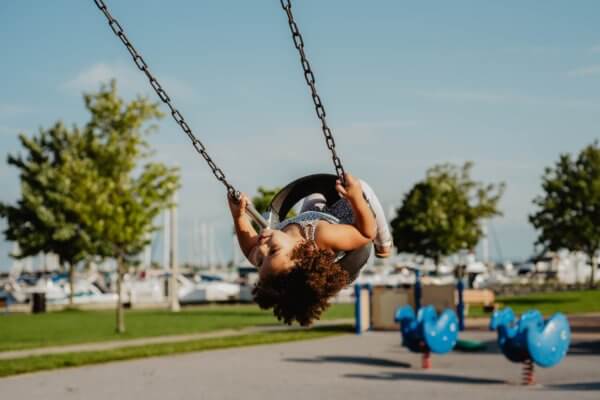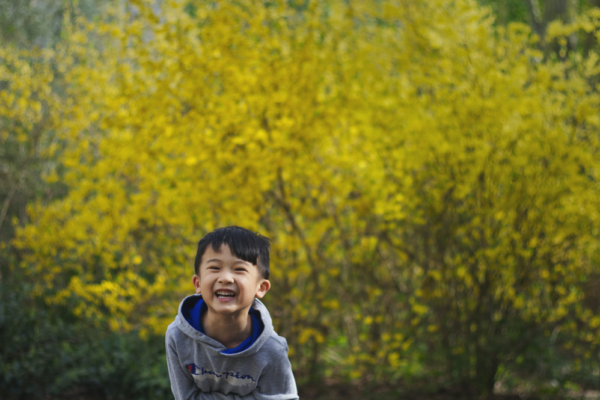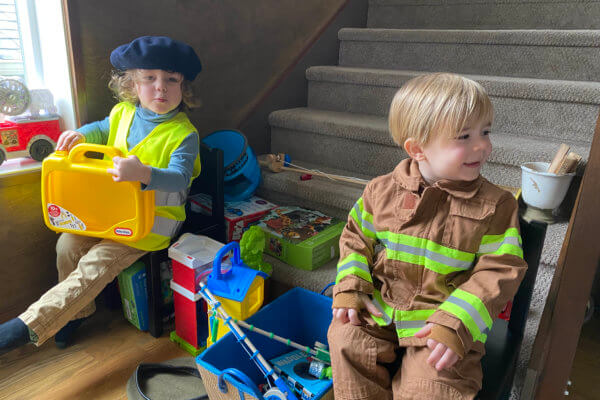A Day as a Positive Discipline Nanny
Being a Positive Discipline nanny truly makes my job so much smoother & more enjoyable! I often say that after being trained in Positive Discipline, I feel like I’m playing on easy mode. This is the true story of how I saw Positive Discipline showing up for me and my nanny kiddos on what had the potential to be a pretty awful Monday.
Flexibility
Monday, fun-day, am I right? I know a lot of people dread heading into the work week, but after a quick cup of coffee, I’m happy to be hopping into my car & heading into work to see my nanny kiddos. Unfortunately on this Monday, my battery is dead, and my car won’t start. I end up Lyfting into work, arriving late, and my nanny kiddo and I miss her music class. My nanny family is super understanding, and we get to practice our flexibility, one of the life skills I want to impart.
Building Connection
Since we aren’t heading to music class, I take the extra time in the morning to enjoy some special time. We play babies & Barbies (her choice) and role play the first day of school and a birthday party. Pretend play is a huge brain-builder, and her cup is full.
Decide what you will do
We’ve moved downstairs, and my four-year-old charge is devastated when she notices we left her favorite baby doll upstairs. She asks me to go get it for her, but I’m not a personal delivery service. I decide what I will do and avoid pampering by telling her, “I’ll go upstairs with you to get your doll when you’re ready, but I’m not getting her for you.”
Contributions
Laundry time! We know that skills boost self-esteem and provide that sense of significance (“I matter & I contribute”) that all adults and children need. My nanny kiddo enjoys tossing the clothes from the washer to the dryer, so she handles that job.

Fostering independence
Our Sproutable Early Years Lead, Julietta Skoog, reminds us that by age 2 kiddos can be practicing doing tasks with you, by age 3 they can be doing these jobs with some help and instruction, and by age 4 they can be doing many tasks independently. I encourage this preschooler to choose, get, and open her own snack this morning because she can do all of that independently and I’ve let go of managing those responsibilities.
Transition object
We’re back upstairs & playing some more, with Potato Heads this time. It’s about time for us to transition to our at-home preschool time, and she’s not thrilled to wrap up our play session. I invite her to bring her Potato Head with us to the table to join us for school today. It works! She grabs her Potato Head and we scoot into the dining area where we start our at-home preschool time.
Encouragement
This child has been learning to read over the last few months. She’s really proud of herself, and I make sure I’m using encouragement, not praise, to cheer her on. “You’ve been working so hard on your reading, and you just read that whole book. You did it!”
Sense of humor
We practice a little writing this morning, too. I read her sentences back to her way over-the-top excited because she’s using many exclamation points today, and it makes us both laugh. Instant connection!
Calm-down strategies
Part of our at-home preschool time includes practicing a calm-down strategy each week. Last week we focused on getting fresh air when we’re dysregulated, this week we’re trying out exercise. Cosmic Kids, anyone? We spend about 20 minutes doing some Frozen-themed yoga.
Choices
Since this child is used to contributing, I didn’t have to ask for help preparing her lunch. In fact, she told me, “I want to help! I’m a chef!” Yes, she sure is. We work together to make a quesadilla. I offer limited choices for sides, she picks, and we eat lunch together.
Modeling & normalizing mistakes
I manage to spill while pouring myself a drink mid-lunch. I always point out my mistakes, and I tell her, “I spilled the milk! That’s alright. I can clean it up.” She’s heard me say this many times and agrees, “Mistakes are okay, Danielle.”
Routine & screen time
Since we keep the same basic routine most days, she knows that we get some screen time after lunch. We limit screen time, and she turns off the TV when her time is up without a battle.
Validate feelings
Oh no! Sweet kiddo had a big head bonk on the metal coffee table. She cries, and I validate her feelings. “Your head hurts so bad!” Almost immediately upon hearing that I know and understand what’s going on, her tears turn into laughter and we move onto the next thing. This doesn’t always happen so quickly & easily, but I’ll take the win today!
Fantasize
We’re in the mood for something sweet and enjoy a few bites of ice cream together. This preschooler would like a little more ice cream than we’re going to have right now, so I indulge her in a quick fantasy. “This ice cream tastes so good. What if we did have more? What if we ate this whole pint of ice cream?” I ask. She ends up being the one to tell me that we’d get sick if we did that. We’ll stick to a few bites for now!
Modeling repair
Yikes! Another ouchie- my fault this time, as I’ve accidentally stepped on her foot. I can tell she’s okay, but I use this opportunity to model making repair and taking responsibility. “Oh no! Are you alright? I take responsibility for bumping into you and stepping on your foot. Can I do anything to make your leg feel better?” She smiles and tells me, “It’s already better.” Crisis averted! I know my modeling is paying off because I see her stop & ask, “are you okay?” and give a soft pet to her dog after she bumps into her later in the afternoon.
Hugs
Hugs build connection, but it’s really important to me to teach body autonomy & consent so I always ask “Can I give you a hug?” before I do. Sometimes it’s a yes, sometimes it’s a no. I can always just use my words to connect and let her know, “I’m having a fun day with you!”
Curiosity questions
We’ve picked up my other wonderful nanny kiddo, the preschooler’s older brother, from school. Now we are going on a walk to get some fresh air and unwind after the school day. Instead of nagging at them to get their coats on, I ask, “What do we need for our walk?” They get their shoes & coats without any more reminders.

Fresh air
We live in Seattle, and the rain isn’t keeping us inside. Fresh air makes all three of us feel good, so we head out for a long, muddy walk near the beach. I try to do more listening than talking while we walk.
Mutual respect
We’re back home after our walk, and in a bit of a rush to get one kiddo dressed & ready for ballet and the other dressed & ready for baseball practice. The older kiddo is working on unpacking his backpack and folder. Instead of demanding he instantly drops what he’s doing, I ask him to “come over when you’re done, so we can get ready for practice.” We don’t have time for a power struggle, and I respect that his tasks are as important as mine.
Curiosity questions, again
Once again, instead of droning on about each item I need them to find and each task I need them to complete, I get curious. “What do you need to do before we put on your leotard?” “Use the bathroom!” Yes! “Can you help me remember what we need for baseball practice?” Honestly, that’s a completely genuine question because he knows better than I do! They’re dressed for their after-school activities, I hand them over to their parents, and Monday is wrapped.
As you can see, Positive Discipline does so much of my work for me! This day could have been so stressful with dead car batteries, missed classes, power struggles, milk spills, head bonks, bad weather, and a busy afternoon, but it just wasn’t. These tools are so powerful.
How does Positive Discipline show up for you and your nanny kiddos?





Comments